Selecting the right safari guide and company for any wildlife excursion is an essential task. How are you to know whether this company will give you the best possible experience, for you and for the animals?
Let’s break down our selection process, which we know will help you in yours!
While the definition of the word “safari” largely stems from sightseeing in Africa, a safari is any wildlife watching endeavor.
Selecting the right guide for your wildlife watching trip is important for many reasons.
- Ethical guides recognize what’s best for the animal(s) you’re watching.
- Looking out for the animal’s wellbeing ultimately protects the animals you’re watching.
- Ethical behavior promotes ethics on a wider scale.
- Your experience of watching wildlife is more enjoyable.
READ NEXT | African Safari Checklist and Packing Guide
Why do you need a guide?
In some places, guides are required to access protected areas.
This requirement reduces the impact of visitors on wildlife and habitat. It also helps ensure people don’t get injured or lost in their attempts to explore.
Guides enhance your wildlife watching experience by providing the know-how and knowledge of:
- Where best to see wildlife
- The best times of day or year to go
- Tips for seeing them ethically, and more.
Getting a knowledgeable guide also helps put your tourism dollars back into the local economy. The more tourism dollars that go into local economies typically means more habitats and animals are protected.
Here are some of the questions to ask yourself as you plan your trip and decide on a guide company.
Who do the local research stations or national parks recommend?
This question is always my starting point when we are searching for the best safari guides to see wildlife.
I reach out to local research stations or national parks to inquire if they have verified guides they recommend.
If the goal is to see wildlife, contacting and asking the experts on the region or animals you’re interested in seeing is a good way to ensure you’ll get a good, knowledgeable, and ethical guide.
Often, reaching out to these kinds of places will also yield potential opportunities to link up with local biologists. Talk about a unique experience!
This is how we got in touch with local researchers at Falsterbo Bird Observatory, Sweden and the most qualified guides for spotting Arctic Foxes in Iceland!
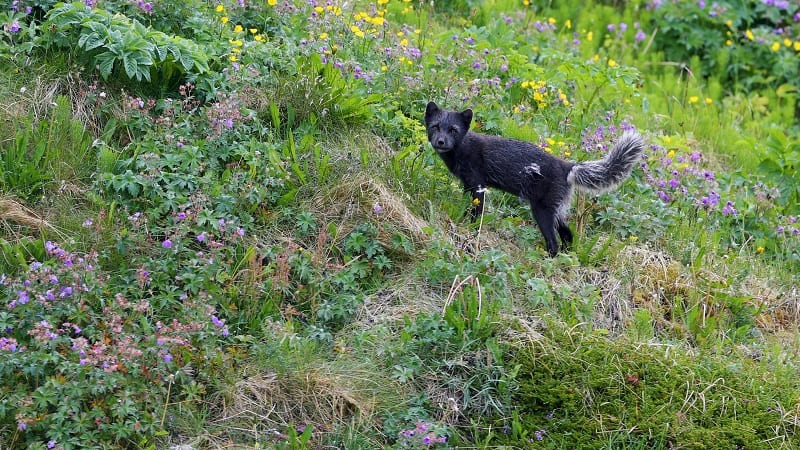
The local research station in Isafjordur, Iceland recommended Borea Adventures as the go-to for seeing Arctic Foxes ethically, and they were right! Photo by Nathan Rolls
Are they engaging in ethical and responsible practices?
Increasingly, travelers are becoming more aware of, or interested in learning more about, ethical animal interactions.
Loving wildlife means supporting their health and well-being. Animal welfare depends on ethical interactions.
Ask or do your research on whether the guide or tour you’re considering allows or supports any of the following:
- Holding, touching, or riding wild animals
- Swimming with or feeding (for meals or luring) wild animals
- Confining wildlife to an enclosed space
- Interacting with endangered, threatened, or rare wildlife
- Using animals for selfies, photoshoots, or performances
- Encouraging close proximity to wild animals
- Using unnatural means of attracting wildlife
While some of these points may have a grey area (such as for authorized research purposes), overall, any tour you book should avoid these activities.
See where your guide is planning to take you along the way. Are they considering having you take part in an unethical wildlife experience?
Ask your potential future guide what their, or their company’s, stance is on these points and whether your itinerary with them will include any of these negative wildlife interactions.
If so, look elsewhere!
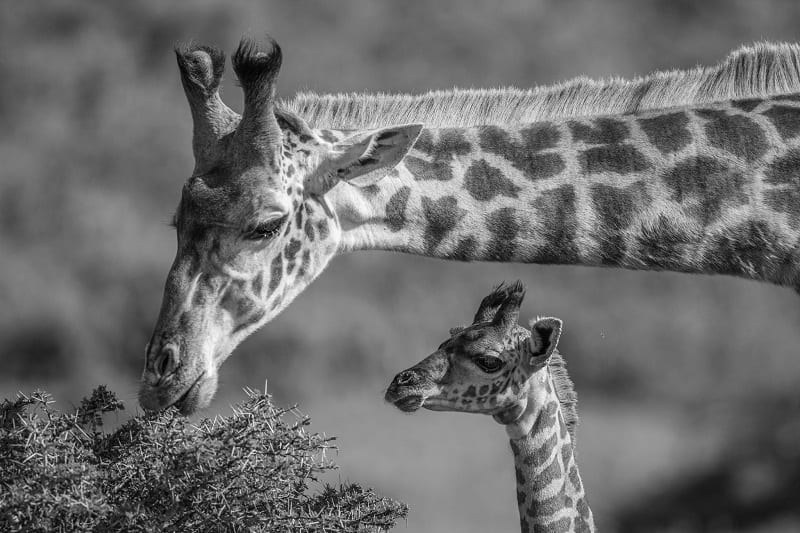
Seeing animals in their natural environment is way cooler when done ethically and at no impact to the animals. Photo by Nathan Rolls
Is the guide local or is the company employing and empowering locals?
The tourism industry is filled with outsiders and expats being the ones to guide visitors. But what visitors often want is that authentic local experience coming from someone who intimately knows the land.
What’s more, guides that are empowered to lead in the tourism industry and are paid well for their efforts recognize that wildlife conservation means personal economic benefits.
Go a step further, and use companies where the majority owner in the organization IS a local.
The Wild Source’s Disruptive Empowerment model, “a solution-based approach to conservation tourism by moving beyond job opportunities to ownership,” does just this.
Their Njozi Camp in Central Serengeti, where we stayed for four nights on our Tanzania safari trip, is majority-owned and managed by a local safari guide, Deo Magoye. It’s also the only safari camp to employ local wildlife biologists.
When locals see that tourism can pay, conservation increases, and poaching and other negative impacts on the wildlife and environment decrease.
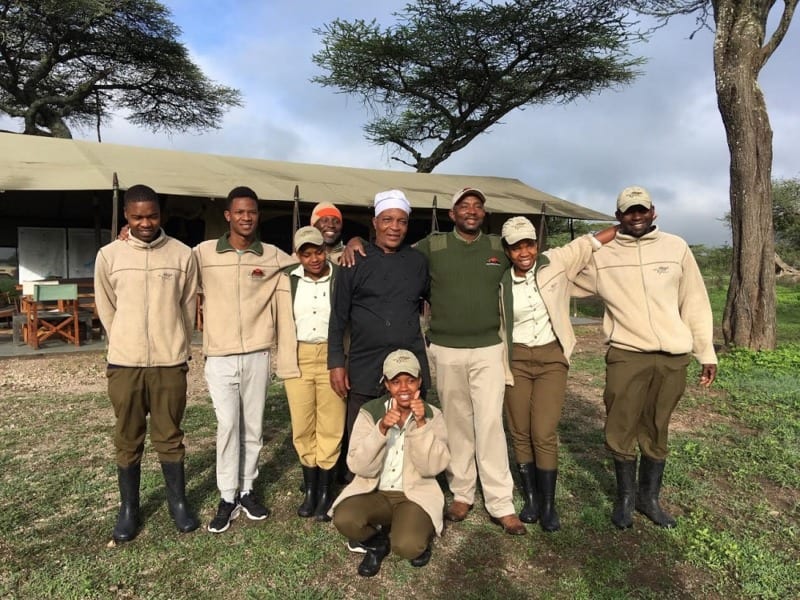
The wonderful team and wildlife biologists at Njozi Camp, Central Serengeti. Photo by Christa Rolls
Do they have a selection of guides that offer different expertise?
Someone can’t be an expert at everything. However, the guide you select should be an expert on the location you’re visiting and the animals you’re planning to see.
Some guiding companies will offer guides who specifically know about certain aspects of the environment. For example, if we want to see as many local birds as possible, we’ll request to hire someone with local bird expertise.
If you’re a photographer, see if your guide specializes in wildlife photography.
It helps A LOT if you’re looking to get awesome wildlife photos that your guide knows a thing or two about lighting and composition.
Nathan capturing this cheetah chase footage wouldn’t have been possible without our guide’s knowledge of animal behavior and optimal shot angles.
What do others say about this guide?
While sometimes you have to take online reviews with a grain of salt, if even one or two speak to the ethics of the person or company, it’s something to look into further.
Even though the desire to have more ethical experiences is increasing overall, many customers may not be aware that certain activities or actions are unethical.
Detailed online reviews that provide background and justification about why an experience was less than ideal should be taken seriously. Bring it up with the company or guide to better understand the specifics of potentially unethical actions.
Is your safari guide accurately and kindly answering your questions and concerns?
When you’re with your safari guide on your trip, you’ll be spending at least a day together. This person will be answering the questions you are itching to know more about the animals you’re spotting and the environments you’re visiting.
If your guide is hesitant to answer questions for you in the trip planning or inquiry process, do you think they’ll answer those questions you hope to get answers to in the field?
Particularly, if you ask the guide about their ethical standards, see what their reaction is.
Plus, if you or anyone in your group have dietary or mobility needs, make sure the trip coordinator is aware of those needs and can accommodate them over the duration of your tour.
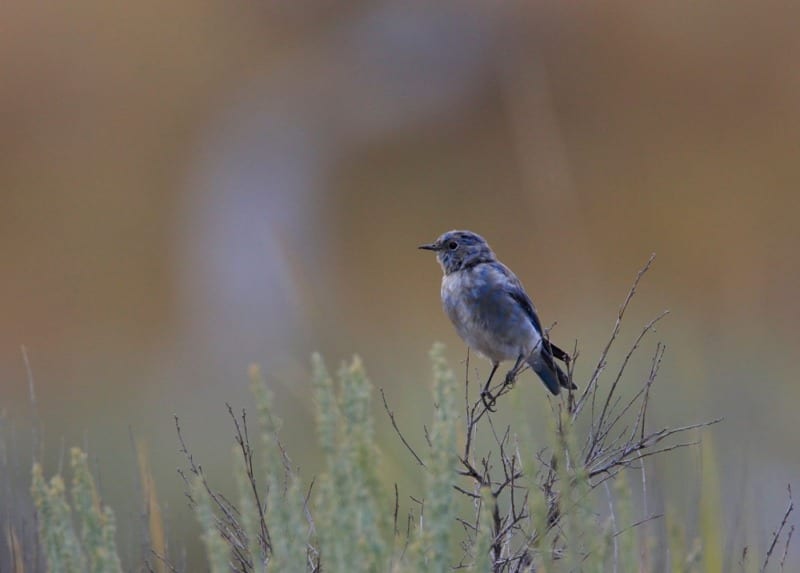
Even the smallest animals, such as this Mountain Bluebird, deserve our respect. Photo by Nathan Rolls
Do your due diligence for your trip experience and the animals you want to see, and go with an ethical safari guide.
The extra research pays off with an incredible experience in the end!
What’s your process for locating an ethical guide? Do you also practice what we’ve mentioned?
Sincerely,
Christa and Nathan
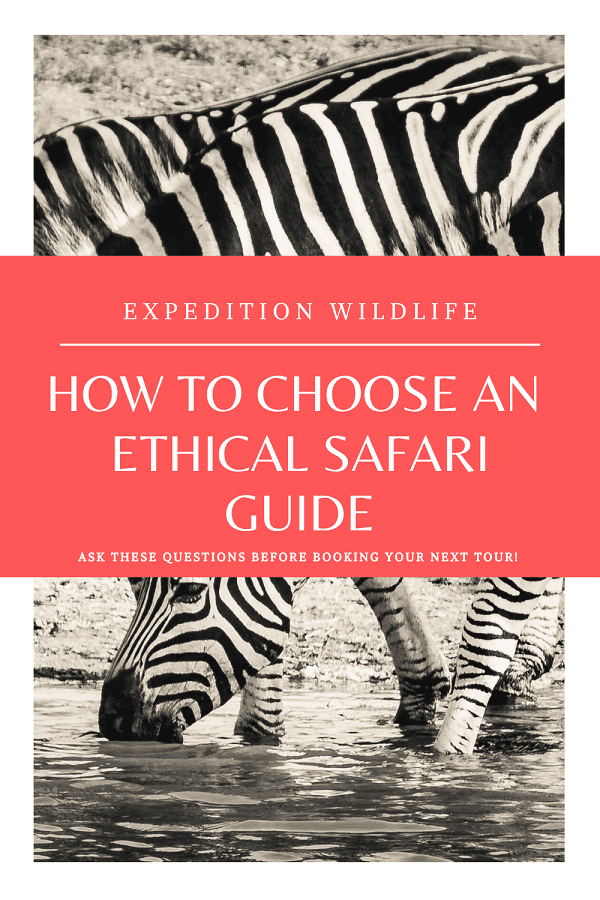

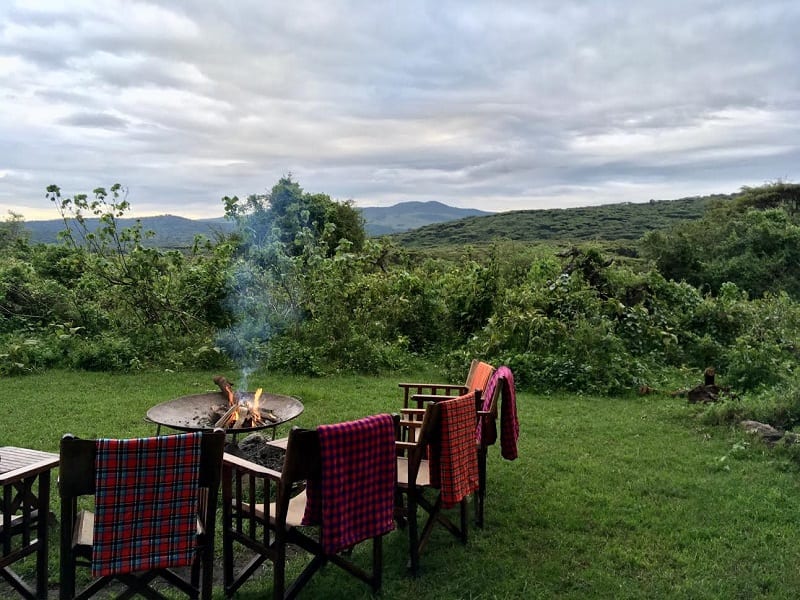
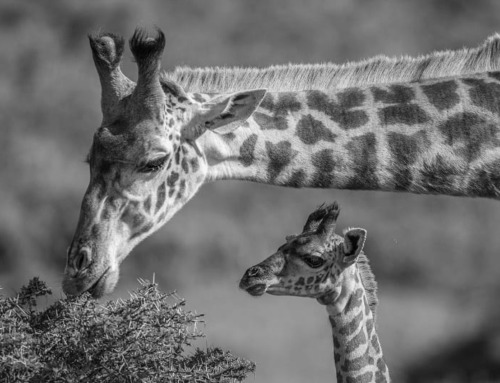
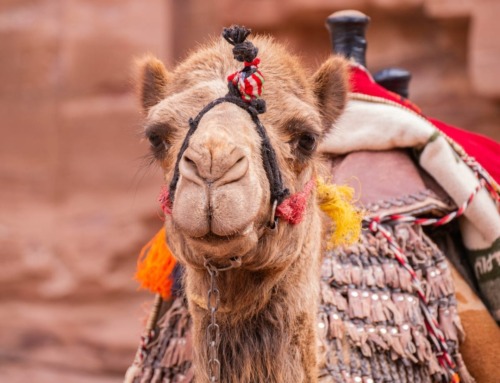
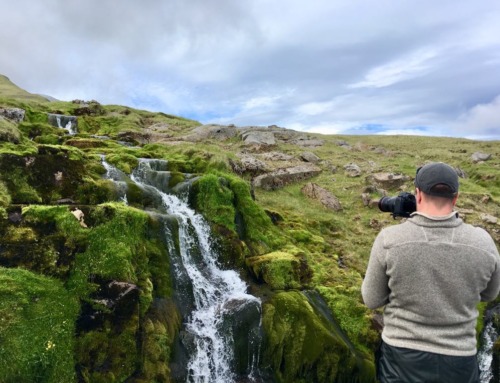
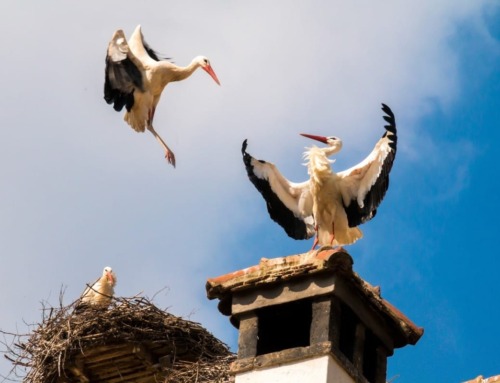
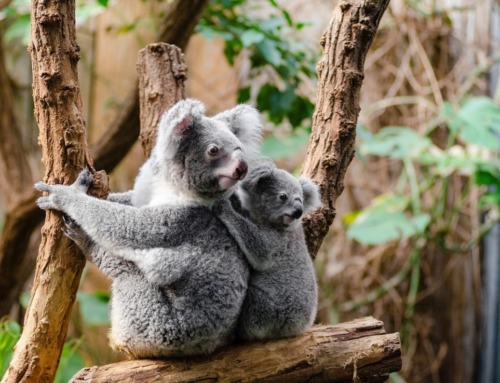

Leave A Comment